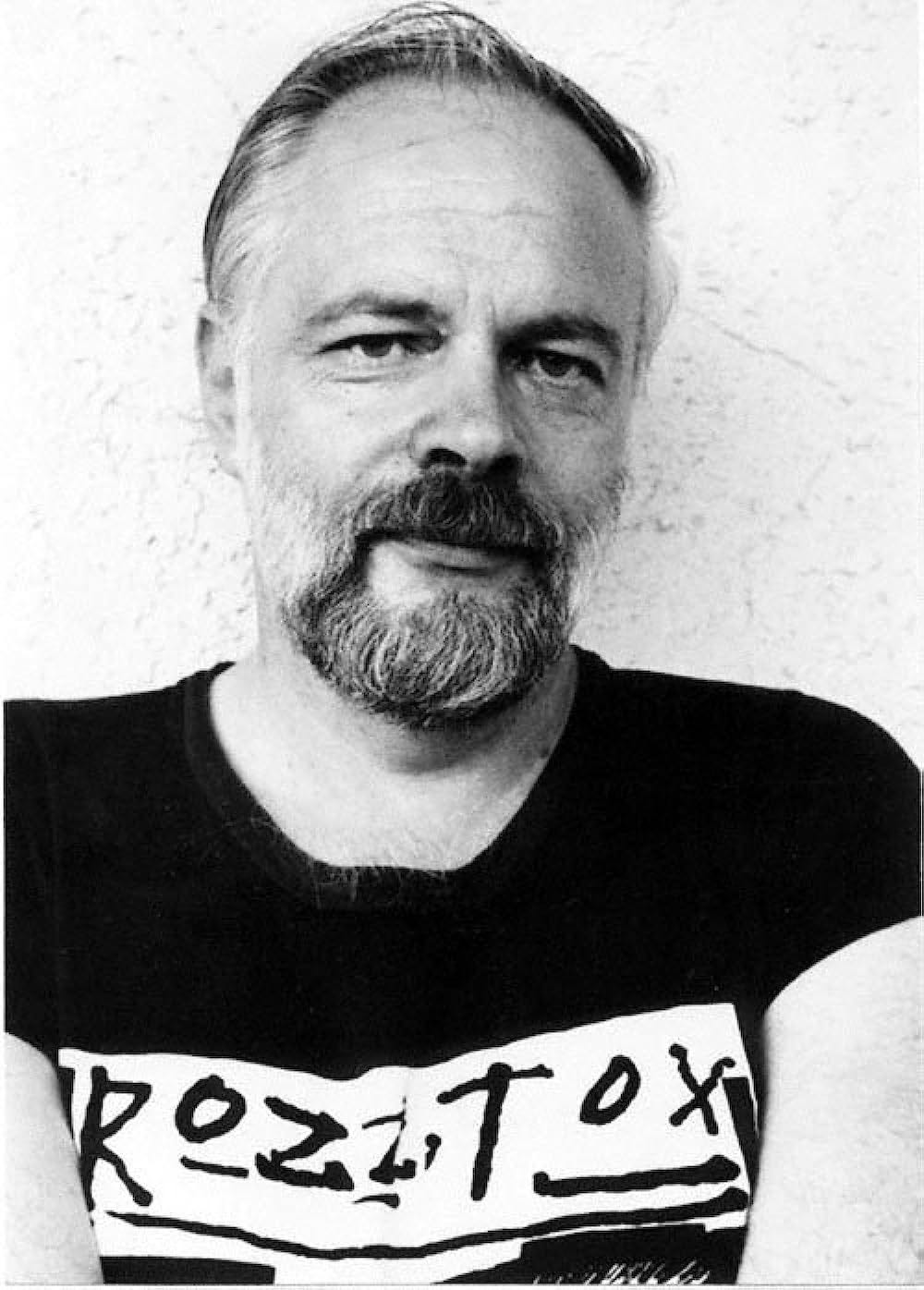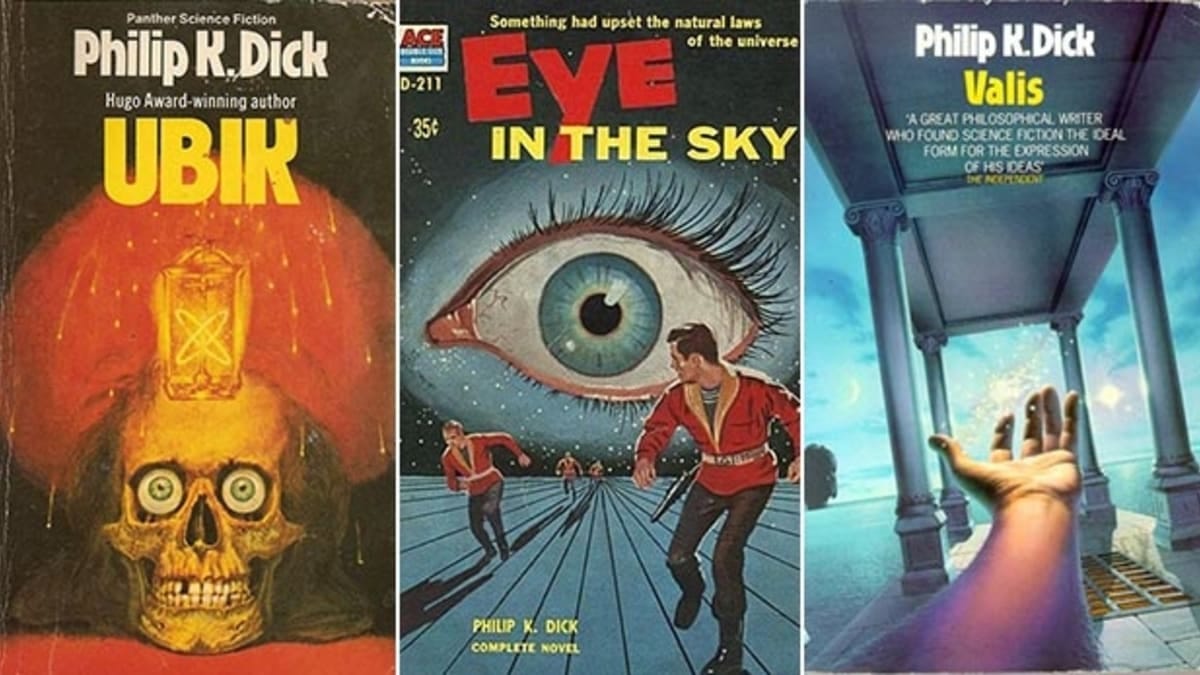The Owl in the Daylight
Philip K. Dick: Loneliness and the Profound Impact of His Twin Sister's Death.
Philip K. Dick, the renowned science fiction author, is celebrated for his visionary narratives that push the boundaries of reality and challenge our perception of the world. Within the depths of his imagination, however, lies a profound sense of loneliness that was intricately connected to the untimely death of his twin sister. This pivotal event not only shaped his personal life but also influenced his writing, leaving an indelible mark on both his psyche and his literary legacy.
Born on December 16, 1928, in Chicago, Philip K. Dick entered the world as one half of a pair of twins. Unfortunately, his sister, Jane, passed away just six weeks after their birth. This early experience of death and the sudden absence of his closest companion left an indelible mark on Dick's psyche. The loss of a twin, an individual so intimately connected, can evoke a unique form of loneliness—an irreparable fracture in the bond that was meant to be shared throughout life.
The death of his twin sister heightened Philip K. Dick's acute awareness of his own mortality and the fragile nature of existence. He became deeply preoccupied with the themes of identity, reality, and the elusive nature of perception. In many of his works, such as "Ubik" and "Flow My Tears, the Policeman Said," characters find themselves questioning their own identities and struggling to discern what is real and what is an illusion. These narratives echo Dick's own existential inquiries, rooted in the loss of his twin sister and his ongoing quest for understanding and meaning.
Loneliness became an enduring theme in Philip K. Dick's life and writing. The absence of his twin sister left him with a perpetual sense of longing and a profound yearning for connection. This yearning manifested in his characters, who often experienced a deep sense of isolation and alienation. Through his work, Dick sought to explore the human condition, delving into the existential angst and loneliness that plague individuals in a complex and ever-changing world.
The death of Jane also led Philip to question the nature of reality itself. The loss of someone so intimately intertwined with his own existence cast doubt on the stability and reliability of the world around him. He became fascinated with the concept of alternate realities, parallel universes, and the malleability of perception. These themes feature prominently in his masterpiece, "The Man in the High Castle," where he imagines a world in which the Axis powers emerged victorious in World War II. This exploration of alternate realities reflects his attempts to make sense of his own reality, forever altered by the loss of his twin sister.
Philip K. Dick's deep sense of loneliness and the impact of his sister's death were intertwined, leading to a unique creative vision that captivated readers. His works were not merely flights of fancy but reflections of his own inner turmoil and existential inquiries. Through his writing, he offered a glimpse into the profound isolation that can accompany the human experience, inviting readers to confront their own fears of loneliness and to seek connection and understanding in a world that often feels disconnected.
Philip K. Dick's life and literary contributions are inseparable from the loneliness he experienced following the untimely death of his twin sister. The profound impact of this loss permeated his writing, giving rise to existential inquiries and a deep exploration of the nature of reality and identity. Through his works, he invites us to confront our own loneliness and to contemplate the fragile and transient nature of our existence. Philip K. Dick's enduring legacy lies not only in his thought-provoking narratives but also in his ability to illuminate the human condition and our collective longing for connection and meaning.
Philip K. Dick (1928-1982) was an American science fiction writer widely regarded as one of the most influential authors in the genre. He was known for his unique and thought-provoking works, which often explored themes of reality, identity, and the nature of human existence. Born on December 16, 1928, in Chicago, Illinois, Dick grew up in a turbulent environment marked by financial difficulties and family issues.
Dick's early interest in writing led him to study English at the University of California, Berkeley, before dropping out to pursue a career as a writer. He began writing professionally in the 1950s, primarily in the field of science fiction. However, his early works struggled to gain significant attention or commercial success. It was in the 1960s that he started to gain recognition for his unique storytelling abilities.
Dick's writing often featured complex and mind-bending plots that challenged conventional notions of reality. His novels frequently delved into themes of alternate universes, artificial intelligence, paranoia, and the impact of technology on society. Some of his most notable works include Do Androids Dream of Electric Sheep? (the basis for the film Blade Runner), Wait for Last Year,and Ubik.
Despite his significant contributions to science fiction literature, Dick faced financial struggles throughout his life. He struggled with personal demons, including drug abuse and mental health issues, which heavily influenced his work. His experiences with hallucinations and paranoia often found their way into his writing, lending it a deeply introspective and introspective quality.
Dick's reputation and influence in the science fiction community continued to grow, but it was only after his death that his work gained mainstream recognition. Today, he is widely regarded as a visionary writer whose works continue to captivate readers with their imaginative concepts and philosophical underpinnings.
Philip K. Dick's legacy lives on through adaptations of his works into films, television shows, and video games. His unique perspective and imaginative storytelling continue to inspire and influence generations of writers, artists, and thinkers. His impact on the science fiction genre and the exploration of the human condition make him a literary icon whose works are celebrated and studied to this day.
Recommended Reads.
Do Androids Dream of Electric Sheep?: This iconic novel serves as the basis for the cult classic film "Blade Runner." Set in a dystopian future, it explores the blurred lines between human and android, raising profound questions about identity, empathy, and the nature of humanity itself.
The Man in the High Castle: Winner of the prestigious Hugo Award, this alternative history novel presents a world where the Axis powers emerged victorious in World War II. Dick weaves a complex narrative that challenges perceptions of reality, blending historical events with elements of science fiction and exploring themes of power, resistance, and the elusive nature of truth.
Ubik: In this mind-bending novel, Dick delves into the concept of reality manipulation and the ambiguous nature of time. Blending elements of science fiction, philosophy, and psychological thriller, "Ubik" takes readers on a mind-bending journey that blurs the boundaries between life and death, raising existential questions about the nature of existence.
A Scanner Darkly: Drawing from his own experiences with drug addiction, Dick crafts a haunting and deeply personal tale of surveillance, addiction, and paranoia. Set in a near-future dystopia, the novel follows an undercover narcotics agent as he becomes entangled in a dangerous web of deception and self-destruction.
Flow My Tears, the Policeman Said: This dystopian novel tells the story of a famous television personality who wakes up one day to find himself erased from society's memory. As he navigates a world that no longer recognizes him, Dick explores themes of identity, power, and the fragility of social constructs.
VALIS: The first book in Dick's "VALIS Trilogy," this semi-autobiographical work delves into the author's own mystical experiences and spiritual beliefs. Blending science fiction, philosophy, and religious themes, "VALIS" follows a protagonist who begins to receive divine visions, leading him on a quest for understanding and enlightenment.
These recommendations provide a diverse selection of Philip K. Dick's works, showcasing his ability to blend speculative fiction with deep philosophical musings. Each book offers a unique exploration of complex themes, inviting readers to question the nature of reality, examine the human condition, and ponder the boundaries of identity and perception.







Mine too. The book is very different from the film, but still worth a read. What did you make of Blade Runner 2049? X
I didn’t know about his twin sister! So fascinating. Thanks!